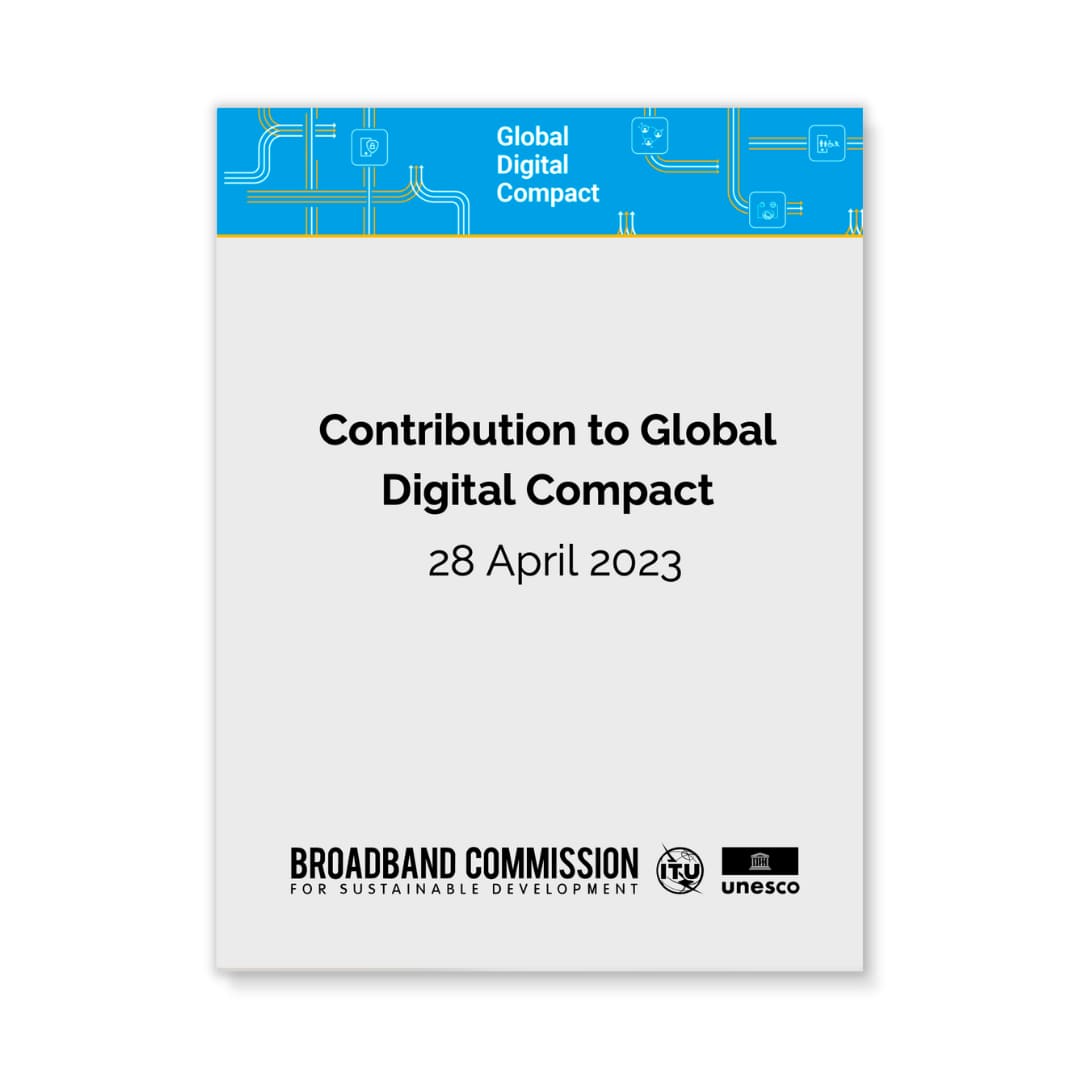About the Global Digital Compact:
Following the political declaration adopted at the occasion of the United Nations’ 75th anniversary in September 2020, the Secretary-General in September 2021 released his report Our Common Agenda. The Common Agenda proposes a Global Digital Compact to be agreed at the Summit of the Future in September 2024 through a technology track involving all stakeholders: governments, the United Nations system, the private sector (including tech companies), civil society, grass-roots organizations, academia, and individuals, including youth.
The Global Digital Compact is expected to “outline shared principles for an open, free and secure digital future for all”. The Common Agenda report suggests issues that it might cover, including digital connectivity, avoiding Internet fragmentation, providing people with options as to how their data is used, application of human rights online, and promoting a trustworthy Internet by introducing accountability criteria for discrimination and misleading content.
The Commission welcomes the initiative of the United Nations Secretary-General to propose a Global Digital Compact and the decision of the President of the General Assembly to appoint co-facilitators for the process – the Permanent Representatives of Rwanda and of Sweden, and recognizes the need for coherent and coordinated UN efforts. The Commission calls for the Global Digital Compact to be anchored in the vision of a connected, inclusive and sustainable world, where no one is left behind from benefitting from digital transformation, where the potential of ICTs is harnessed to realize the 2030 Agenda and to secure a sustainable and inclusive digital future for all.
Thematic Deep Dives:
In October 2022, the President of the UN General Assembly appointed the Permanent Representatives of Rwanda and of Sweden as Co-facilitators to lead the intergovernmental process on the Global Digital Compact. Consultations with Member States and Stakeholders are scheduled from January 2023 through June 2023, allowing for remote participation of Stakeholders.
The Broadband Commission Secretariat will attend each thematic deep-dive discussion and prepare a high-level summary of these events. In addition, Commissioners and their organizations are invited to attend and speak on the floor of these discussions.
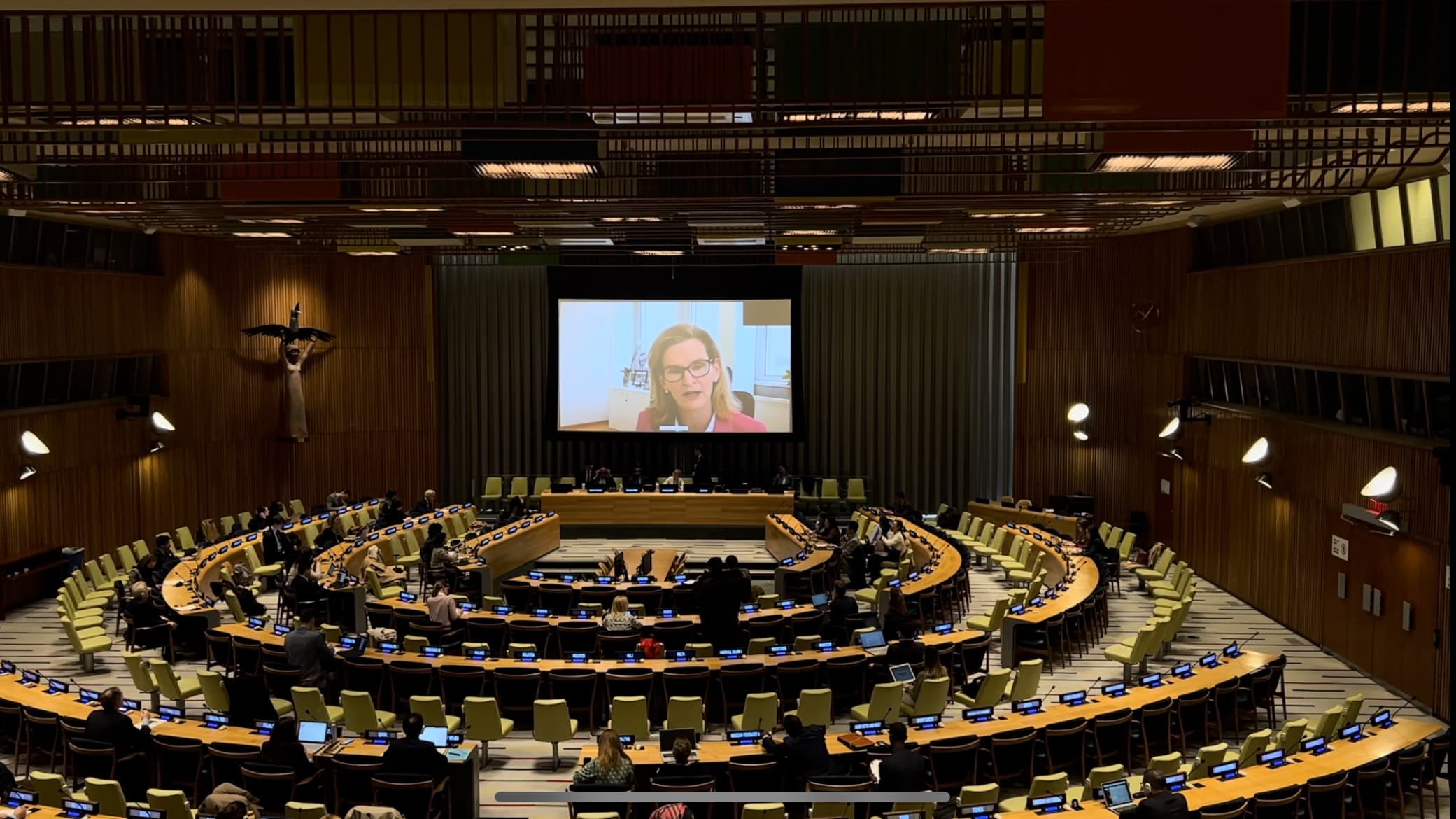
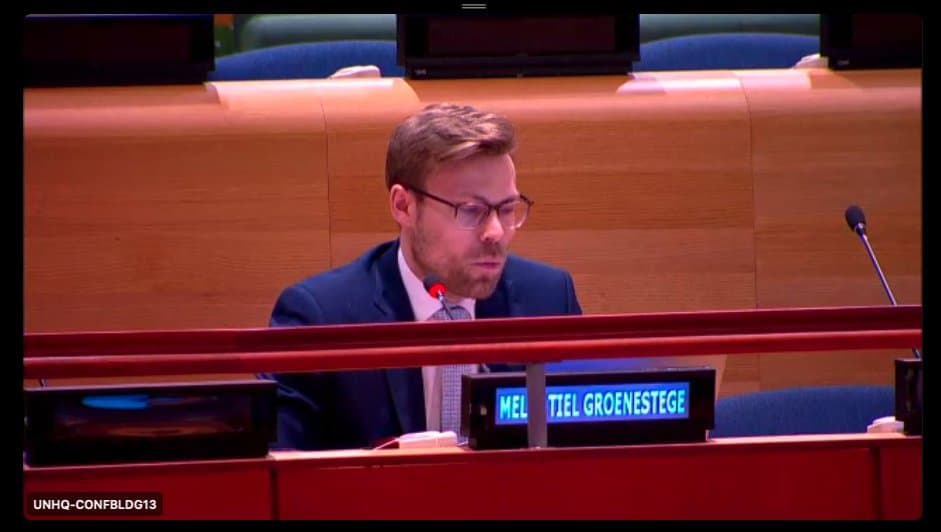
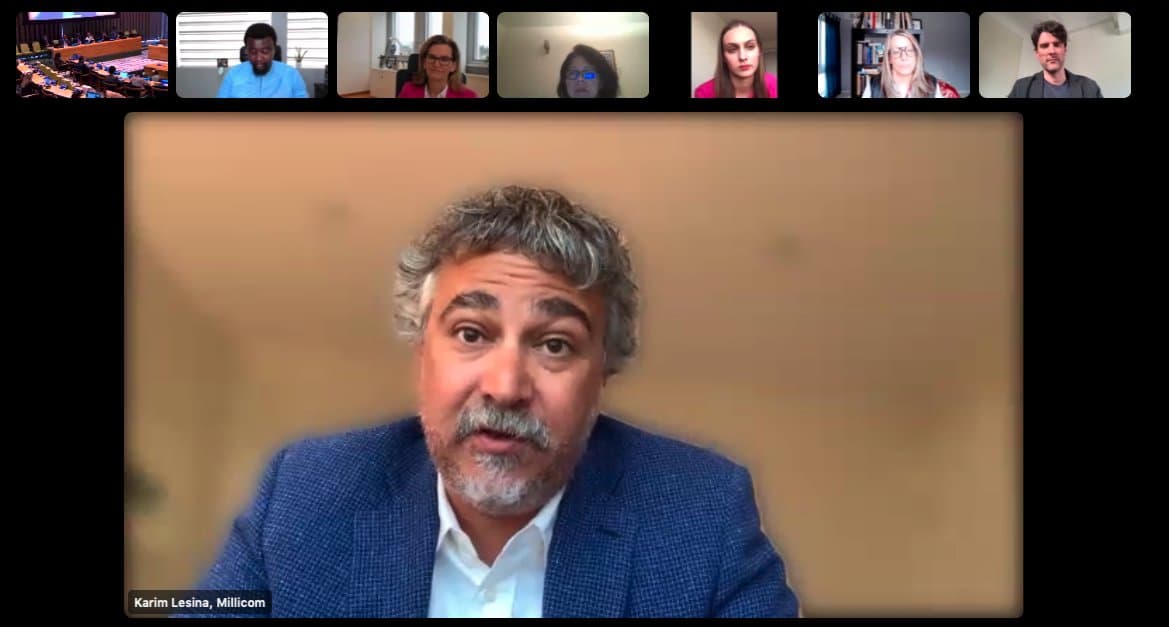
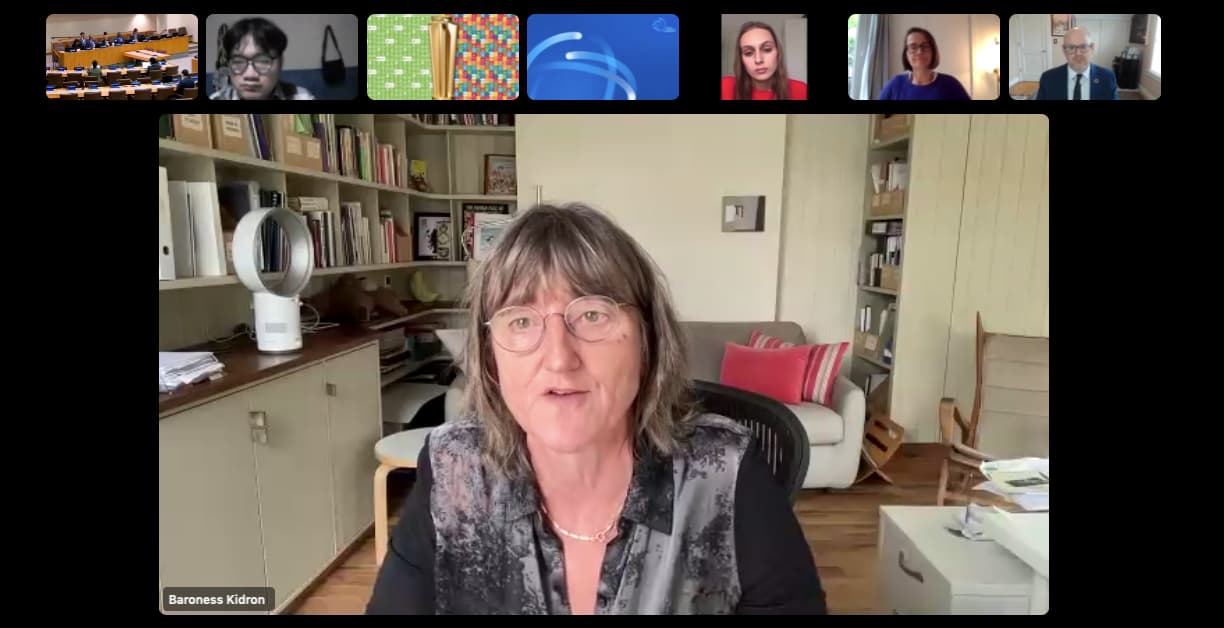
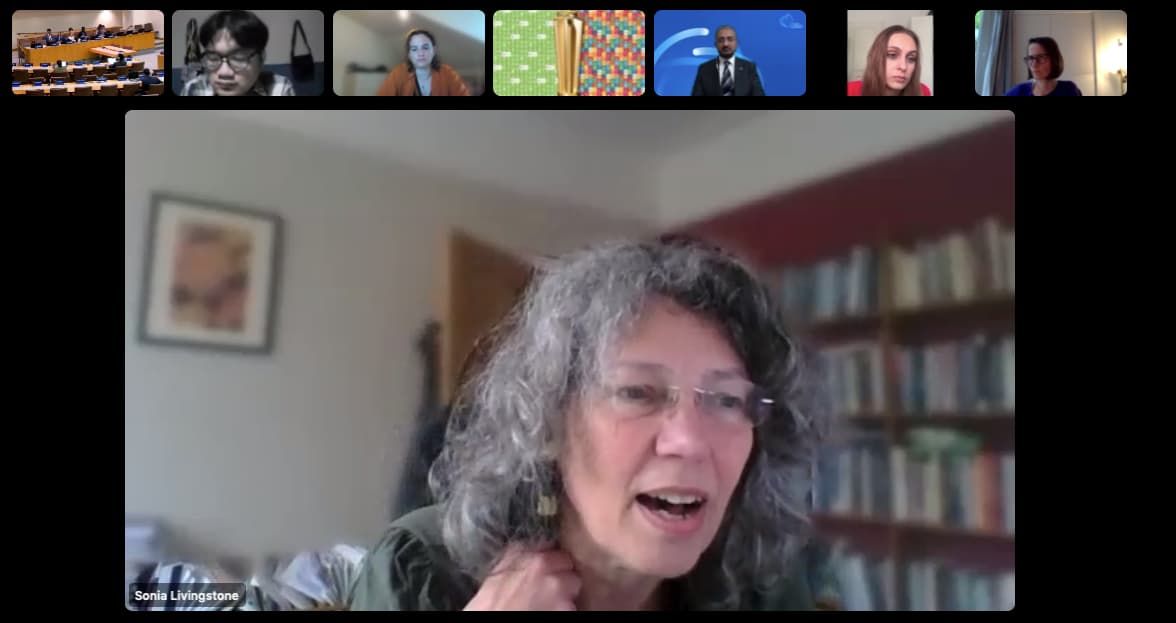
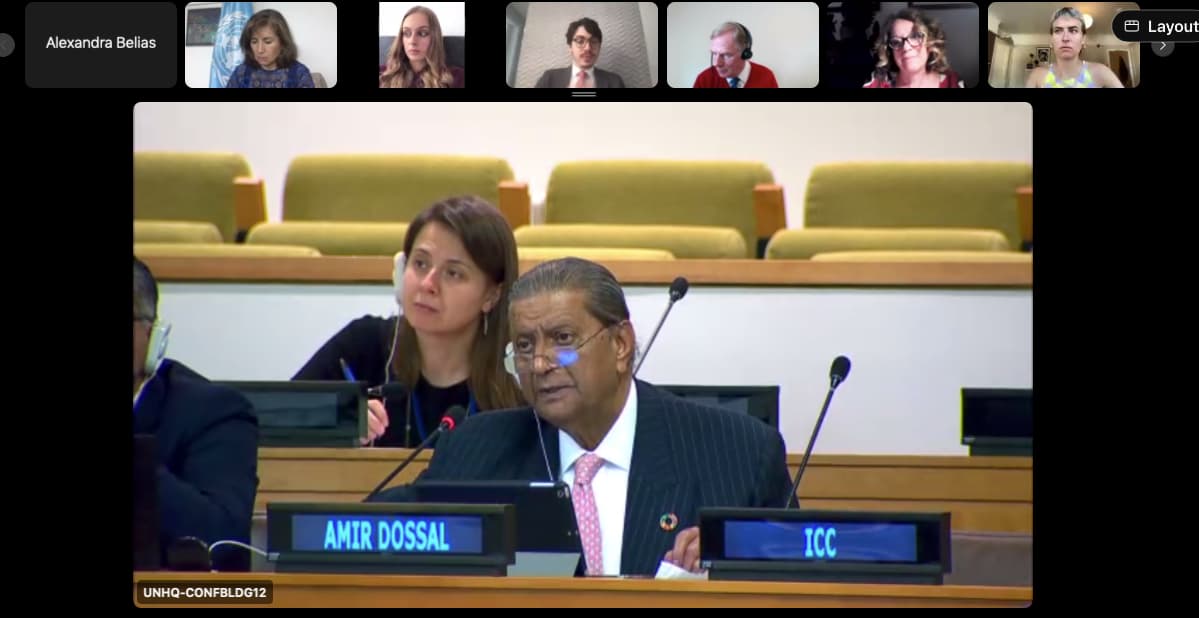
Use the drop-down menu below to find summaries of past sessions and registration information for future sessions.
This session emphasized the need for connectivity and digital inclusion to be addressed in the Global Digital Compact, emphasizing the need for specialized agencies, innovative financing, regulatory environment, affordability, digital literacy/skills, trust, privacy, safety and violence online, critical thinking/media literacy, content (e.g. e-government), satellites and community networks, responsible tech companies, cooperation and partnership among stakeholders, and prioritizing women and girls.
Broadband Commission participation:
- Ms. Doreen Bogdan-Martin, Broadband Commission Co-Vice Chair and Secretary-General of the ITU, opened the discussion, calling to catalyze on digital inclusion and connectivity, as well as on the existing work of the Roadmap for Digital Cooperation and platforms like WSIS and the Broadband Commission.
- GSMA stated, “We believe the Global Digital Compact, under the leadership of the UN Tech Envoy, can inspire stronger multi-stakeholder action to accelerate internet adoption and use, while acting in synergy with existing expertise and established platforms in the UN system, recognising the importance of efforts led by the ITU, IGF, and Broadband Commission, to name just a few.”
- Millicom emphasized that while connectivity is infrastructure, the digital divide is now largely about digital literacy, digital safety & affordability. They also called for more technology adapted to low-income markets to increase connectivity.
- Representatives from the countries of Switzerland and Pakistan also mentioned the Commission in their statements.
This session focused on answering the questions:
- How we can ensure a safe, global, secure, and inclusive internet amidst the rapid growth and emergence of new internet-based tools?
- The 2005 Tunis Agenda endorsed a multi-stakeholder approach to the governance of the Internet. How have we succeeded in realizing vision? How do the roles and functions of various multi-stakeholder forums such as ICANN, IETF and the IGF come together to support Internet governance? And how can they be strengthened?
- How can governments, technical standard bodies, civil society, industry and all stakeholders work together for an open, indivisible, free, interoperable, global, secure, and inclusive Internet?
Speakers emphasized the importance of multistakeholder cooperation and the use of existing governance platforms, guidelines, and bodies like IGF, WSIS, and ICANN to ensure the internet is open, indivisible, free, interoperable, global, secure, and inclusive. Participants also highlighted the need to bridge the digital divide by promoting digital inclusion, skills building, and localized content. Finally, the session underlined the importance of ensuring transparency, safety, and human rights protection in the development of new internet-based tools and services and ensuring that the internet remains affordable or free for everyone.
This session emphasized the need for developing global data governance frameworks to ensure that data is protected, accessible, and used for the benefit of all. Moreover, it illustrated the critical role that data plays in shaping economic growth, innovation, and social development was also highlighted.
Several challenges were covered, such as the lack of data protection legislation in many countries, fragmentation in policy, cyber-attacks, power imbalance, and the digital divide due to the lack of digital skills and digital infrastructure.
To address these issues, a number of the suggestions that were raised called for promoting global convergence, technology transfer, and collaboration on data governance to advance interoperability and cross-border data sharing while involving the private sector, civil society, and users.
It was also suggested to include communities in making decisions on their own data while developing regulatory frameworks. This would ensure that the data is collected ethically and with the consent of the community members, thereby minimizing the risk of data exploitation. Additionally, the speakers referred to the conclusions of CSW67, which emphasized the importance of ensuring that data isn’t exploited or used to cause harm for women, girls, or vulnerable communities that face inequalities and discrepancies in accessing and using data.
This session shed light on the many risks and challenges to human rights faced by vulnerable groups such as women, children, and minorities face in the digital world. The need to establish sound legislation and accountability measures from governments, corporations, and the ICT industry to combat these challenges was emphasized across all contributions.
Speakers discussed the critical role that stakeholders across sectors play in protecting human rights in the digital realm. To tackle misinformation, high-quality education and digital literacy are key along with ensuring that digital technology promotes human rights, speakers called for a human rights-based approach to the entire life cycle of digital technology. Contributions were made by several Commissioners and their entities – including Broadband Commissioner Baroness Beeban Kidron, Sonia Livingstone, Meta, UNICEF, ITU and UNHCR. Baroness Kidron discussed the importance of building a digital world that prioritizes the agency and safety of children, centering children’s rights and voices, engineering systems to prevent radicalization and child sexual abuse, using AI to support children with delayed speech, and protecting human rights online. She highlighted the need for voluntary standards and age-appropriate design codes and called for more focus on disadvantaged regions and greater adoption of UN guiding principles on business and human rights.
Many representatives outlined the special responsibility the ICT industry holds to design technology that prioritizes child safety and privacy. The importance of empowering children to express themselves, to participate in finding solutions, and to have their opinions heard was also highlighted. Speakers stressed that young people should be consulted when creating the GDC, to ensure that all children’s rights are upheld. Lastly, the speakers stressed the importance of keeping the internet open and free, while also promoting digital literacy to address the digital gender divide and ensure safe and secure technology.
This session centered on the potential risks and exploitation of digital spaces and online platforms, the collaborative measures needed to tackle misuse of these spaces and the jurisdictional and policy differences to be considered when developing common frameworks for addressing online safety.
Speakers discussed key measures for protecting public information, preserving civic spaces for public debate, and increasing capacity building of digital skills to that users can protect themselves, noting how global digital cooperation can strengthen their implementation.
This session covered the rapidly evolving field of AI and other emerging technologies. Speakers remarked on the importance of multistakeholder collaboration in the development of AI and its regulations, emphasizing the importance of involving scientists, governments, and both public and private sector representatives from around the world. Key points raised by speakers focused on upholding principles of fairness, accountability, transparency, and addressing challenges such as misinformation. The general recommendations and conclusions included ensuring the broader societal benefit of AI applications such as sustainability and gender equality – all while ensuring the inclusion of developing countries and the global south.
Broadband Commissioner Mr. Amir Dossal proposed a partnership portal to support developing countries in activities such as accessing resources, suppliers, capital expertise, and crowd funding sources. He stressed the importance of inclusivity in shaping AI policies and initiatives and urged the UN system to ensure the involvement of the 2.9 billion people who are currently disconnected.
UNESCO underscored the need to re-engineer government capacities to effectively handle the impact of AI on human rights. They also expressed the importance of governments building their own technologies and investing in their digital capacities to enable this.
Additionally, the efforts of Barbados in establishing a Caribbean community framework for a unified ICT stage were presented. This initiative aims to foster collaboration, knowledge sharing, and technological advancements across the region.
Representatives on behalf of ITU and Broadband Commissioners’ organizations – Meta and ISOC – were also in attendance.
For participation, please register here.
For participation, please register here.


